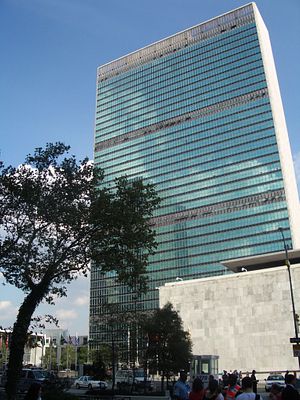A quick addendum to Wednesday’s column about language and the law of the sea. We err if we place too much faith in the power of written documents such as constitutions, laws, and international covenants of various types. Putting the right words on the page constitutes part of the challenge. That’s what lawmakers and diplomats do. But succeeding generations of human beings are what puts meaning into — or allows it to be drained from — those words.
A written compact can lose force if posterity comes to doubt its legitimacy, if it falls out of step with the times (in dear old Rhode Island, for instance, it’s apparently illegal to bite off someone else’s leg), or if its opponents deliberately undermine it. Those hostile to a pact, in part or in whole, can reinterpret its plain meaning — reshaping or subverting it altogether over time.
Which is why even a clearly worded pact like the UN Convention on the Law of the Sea — a covenant that can seemingly stand on its own — needs defenders. No less a personage than James Madison, acclaimed father of the U.S. Constitution, warned against trusting to “parchment barriers” to stave off bad things. In particular, he bewailed government institutions’ tendency to overstep their constitutional bounds — usurping power to the detriment of liberty.
In February 1788, writing as Publius in the New-York Packet. Madison prophesied that the legislative, executive, and judicial branches would horn in on one another’s functions over time. The urge to amass political power might distort the American system’s workings and, if left unchecked, expose the republic to tyranny. Asked Madison:
Will it be sufficient to mark with precision the boundaries of these departments in the Constitution of the government, and to trust to these parchment barriers against the encroaching spirit of power?
He voiced doubts. Like the rest of the founding generation, he feared letting power concentrate in the hands of one person or body. That way lay despotism. Yet written safeguards against such imperial overreach had proved “greatly over-rated.” It was essential to mount some “more adequate defense,” warding off “those encroachments which lead to a tyrannical concentration of all the powers of government in the same hands.”
What sort of defense? Needless to say, each branch should defend its constitutionally ordained prerogatives. Beyond that, Madison implored the citIzenry to remain eternally vigilant. Monarchies and democracies were under greatest threat from an overweening executive. A representative republic like the early United States, on the other hand, should fret mostly about the legislature. Proclaimed Madison, “it is against the enterprising ambition of this department, that the people ought to indulge all their jealousy and exhaust all their precautions.”
At the end of the day, then, it’s up to those who live under a constitution, law, or treaty to uphold its meaning. The American people were the arbiters of last resort of how their constitution worked in practice. Likewise, seafaring states represent the arbiters of whether the UN Convention on the Law of the Sea continues to mean what it says. (Please spare me the gotcha line about how the United States isn’t party to UNCLOS. Who enforces the law of the sea if not the U.S. Navy and its partners?) They must be as watchful, jealous, and persistent as Madison’s countrymen.
That’s why rebuking China’s efforts to redefine the plain meaning of UNCLOS is so crucial. Friends of freedom of the sea should do it early and often. Don’t let Beijing — or anyone else — shred the parchment barrier against nautical tyranny.

































